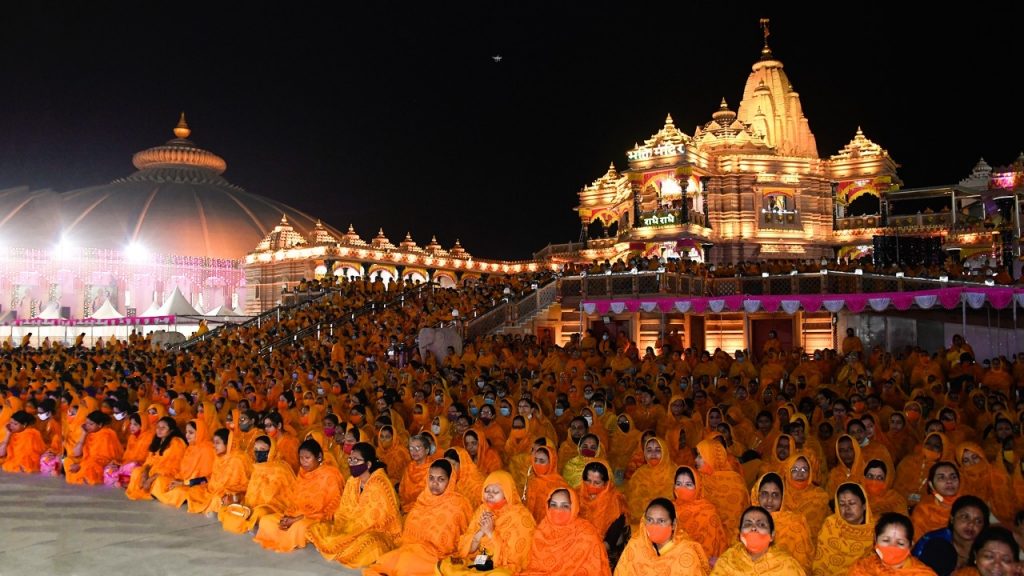New Delhi (Agency): TThe Maharashtra government has presented its rationale for enacting the Pandharpur Temples Act, citing the need to protect the Vitthal and Rukmini temples and devotees from the rapacity of the priestly classes. In an affidavit filed on August 24, the government responded to a petition filed by BJP leader Subramanian Swamy and Jagdish Shetty, who contested the Act’s provisions and claimed violations of fundamental rights.
Pandharpur, located in Solapur district, is renowned for its temples dedicated to Lord Vitthal and Goddess Rukmini. Every year, lakhs of devotees embark on a pilgrimage to Pandharpur, culminating in the celebration of Ashadhi Ekadashi.
The government’s affidavit argued that unique circumstances surrounding the Pandharpur temples necessitated protective measures, as they hold a distinctive position in the state. It stated that the Act was introduced to safeguard the temples, their properties, and endowments, as well as the multitude of pilgrims, from potential exploitation by the priestly classes.
The affidavit, filed by the deputy secretary of the state Law and Judiciary department, rejected allegations that the Act violated devotees’ fundamental rights. It contended that the Act’s primary objective was to enhance the temples’ administration and governance, ensuring better management.
The government emphasized that the Act did not infringe upon devotees’ rights to practice and propagate their religion and was legitimately enacted in the public interest.
In response, Swamy and Shetty maintained that the provisions of the Pandharpur Temples Act violated their fundamental rights as devotees of Lord Vitthal, Goddess Rukmini, and Hindus in general. They argued that the state could only assume control over temple property and administration for a temporary period in cases of financial mismanagement.
According to the petition, the Pandharpur Temples Act of 1973 abolished hereditary rights and privileges of ministrants and priestly classes regarding the governance and administration of the Vitthal and Rukmini temples. It granted the state government authority over administration and fund management.
The government’s affidavit highlighted that the Pandharpur temples were considered public temples open to individuals of various faiths and philosophies, rather than being religious denominational institutions.
In the 1960s, the Maharashtra government received numerous complaints about mismanagement and malpractices at the Pandharpur temples, along with reports of harassment and exploitation of devotees. To address these concerns, a Commission of Inquiry was established to investigate and submit a report, which recommended changes for better temple management.
The government asserted that the Act was introduced in the interest of the general public, promoting economic, financial, political, and social reforms associated with religious practices. It clarified that the Act did not impact any protected religious rights of pilgrims or devotees and preserved the observance of religious practices according to traditional usage and custom.
The provisions of the Act had previously been challenged by priestly classes and had been upheld by trial courts, appellate courts, the high court, and the Supreme Court.
The petition, filed in February this year by Swamy and Shetty, alleged that the Maharashtra government had taken over the administration of the Pandharpur temples arbitrarily, affecting Hindus’ rights to practice, profess, and propagate their religion and manage Hindu Religious Endowments and their affairs in matters of faith.
A division bench of the Bombay High Court, consisting of Chief Justice D K Upadhyaya and Justice Arif Doctor, is expected to hear the matter on September 13.
The Maharashtra government has defended the Pandharpur Temples Act, emphasizing the need to protect the temples and devotees from exploitation by priestly classes. The legal challenge to the Act’s provisions will be deliberated upon in court.
